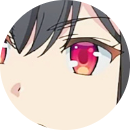I. Choose the most suitable answer A, B, C, or D to complete the following passage. (2.0 marks)
Computer (1)__________ enormous impact on our life nowadays. We do shopping, work, or visit places of scenic beauty with help of computers. We pay bill prepared by computers. We read newspapers and magazines which have been produced on computers. We (2)_______ letters from and send letters to almost every part of the world with the help of the computers. And we can (3)_________learn foreign languages on computers.
What makes computer a miraculous device ? Each time ( 4)________ it on, with appropriate hardware and software, it is capable of doing almost (5)_______ you ask. It is a calculating machine (6)________ speeds up calculations : it can add, subtract, multiply, and (7)________ with lightning speed and perfect accuracy. It is a personal communicator which helps you to interact ( 8)_________other computers and with people around the world. And if you (9)_________ to entertain, you can (10)_________ with computer games or computer CD music.
1. A. have B. have had C. are having D. had
2. A. receive B. post C. borrow D. lend
3. A. only B. ever C. even D. just
4. A. put B. let C. take D. turn
5. A. thing B. anything C. something D. all things
6. A. which B. whose C. where D. when
7. A. enjoy B. provide C. divide D. expect
8. A. to B. on C. between D. with
9. A. interested B. want C. would D. ought
10. A. relax B. revive C. reset D. repeat
Your answers:
II. Read the passage and answer the questions by choosing the best answer: (1.0 mark)
In Viet Nam, there is great excitement built up well before Tet Nguyen Dan. First, every family organizes a trip to the cemetery to visit the graves of their ancestor. After that, to create an air of prosperity, wealth and fun for the first three days of the Lunar New Year, people are kept busy cooking traditional foods, buying gifts, and making other preparations. Certain items deemed to be bought or made are banh chung, dried watermelon seeds, tea, dried sausages, fruit (fresh and candied), ornamental plants and flowers. Red and yellow flowers are ideal as they make the house more welcoming. On the New Year's days, only good comments and wishes can be expressed. Children receive their Li xi (or red envelopes with lucky money inside). People make a visit to family members, neighbors, and close friends. And people who live apart from their family try to get together on these days. Clearly enough, games and various forms of entertainment are staged and these often last a week. Varying traditional specialties including wrestling, buffalo fighting, dragon dancing take place in different regions.
1. Before Tet, people usually _________.
A. are very busy with the preparations B. have great excitement and fun
C. rebuild their ancestral graves D. spend time on traveling
2. Which of the following, according to the passage, is not usually eaten during Tet?
A. candied fruit B. sausages
C. watermelon D. beef stew
3. Why are red and yellow flowers popular in decorating the house at Tet?
A. Because they are pleasant and cheap. B. Because they make the house look comfortable to be in.
C. Because they represent good luck. D. Because they are attractive and not very expensive.
4. On the New Year's days, _________.
A. people are busy cooking traditional foods B. everybody receives their “lucky money”.
C. only good comments can be made D. houses are cleaned and decorated with trees and flowers
5. Which of the following is not mentioned in the passage?
A. Tet is period of concord and hope. B. Tet is an occasion for a family to get together.
C. Tet is a good time to visit others. D. Tet is a great season of joy and of entertainment.
Your answers:
III. Fill in each numbered blank with one suitable word. (2.0 marks)
TRAVELING
A hundred years ago, most people traveled on foot, by train, or on horseback. Railways made (1) ______ possible to travel rapidly over long distances. (2) _____ were also becoming popular, after the invention of the air - filled tire, which made cycling a lot more comfortable. Buses, trams and underground railways (3) _____ invented, and cities all over the (4) _____ already had traffic jams. There were very (5) ______ private cars and city streets were still full of horses.
What a difference a hundred years have made? Nowadays we have got used (6) _____ the problem of private cars, and some cities are (7) _____ noisy and polluted that in many places vehicles have been banned from the city center. (8) _____ will we travel in a hundred years’ time? Perhaps by then there will be only personal helicopters. (9) ______may be no need to travel to work or school in the future, since everyone will have a computer at home. There might even be more (10) _____ walking and horse - riding, for pleasure and exercise.
Your answers:
1. | 2. | 3. | 4. | 5. |
6. | 7. | 8. | 9. | 10. |









